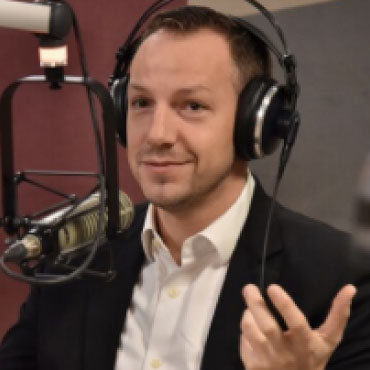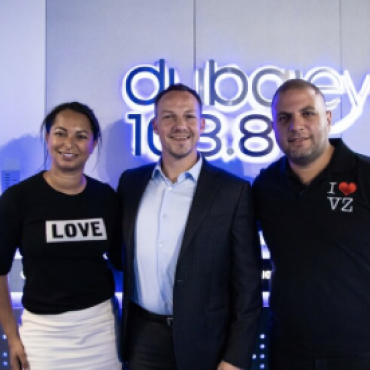The first thing that strikes you about Dr. Corrie Block is his sheer clarity in thought and words. Almost everything he says feels like an enlightenment – one you wish to tuck away for posterity. Sample this: “I believe our career is how we contribute to the world. We have better technology, communications, and healthcare than at any previous time in human history. We are all beneficiaries of the efforts of generations that came before us. And the work we do now expresses both gratitude for the world we’ve inherited, and intent to create, build, and reimagine the world we’ll leave behind for others. Our work is our social role, it’s the value we provide in exchange for being provided for and protected by our communities.”
Dr. Corrie inspires human purpose and belonging. He sees the world as a place where business is simply people playing economic games. And companies are just competitive teams with talented players. When people find meaning in their careers, they are also happier, better paid, healthier, and live longer lives. “If you’re going to spend half of your life at work,” says Corrie, “it should be a meaningful half.”
Dr. Block is a globally renowned Organizational Behaviorist with multiple prestigious degrees to his credit. Considering his academic excellence, it is not hard to envisage why Corrie is a world leading expert in Business Strategy and Restructuring, Leadership Development and Executive Coaching. He’s worked in more than 150 companies in 30 countries, from 5 employees to 50,000, and in tech startups and governments right up to Microsoft and the World Bank. He has worked with hundreds of thousands of employees, and tens of thousands of managers and leaders.
“The one thing that all of these economic communities have in common are people. Humans behave mostly the same most of the time, and most of us want the same things. I’ve built my career by helping companies to perform better through employee engagement and meaningful leadership,” says Corrie.
As the Founder and CEO of Paragon Consulting, Corrie is deeply passionate about helping people to improve the quality of their own lives by finding meaning in their careers, helping leaders to perform at their natural best, and helping organizations become more profitable by leveraging social cohesion and high performance culture. In this, he operates by his five core values: generosity, curiosity, loyalty, destiny, and passion.
“My first love is improving the quality of other peoples’ lives. Whether we meet for a few moments, or we spend years in a relationship together, I want my influence on you to have positively impacted your quality of life. Secondly, I collect competencies. I’m driven by insatiable curiosity about everything and what I really want is knowledge. I love to understand how things work, and why they are the way they are. The more I learn, the more I see there is left to learn. I hope my addiction to learning will never be cured,” says Corrie of his passion.
Is learning a way to get ahead in the rat race, we ask him? Vehemently opposed to the idea, he says selfish tigers and stupid rats are both icons of disaster, as humans can survive only through cooperation. “All humans alive today exist because the 10,000 generations before them were able to survive and adapt to whatever the world threw at them. The ones that didn’t adapt, didn’t survive. Their offspring aren’t here today. Instead, we have a million years of evolutionary success passed down to us that tells us that the best way to survive is to do so in teams. Not as passive drones, and not as lone tigers. Families, tribes, nations, empires, companies, departments, neighborhoods… these are all teams of humans working together to help each other survive and thrive.
We are co-creators with each other, maximizing our combined strengths for mutual benefit. We’ve been doing it for a million years,” opines Corrie.
How does one explain leadership then? Corrie holds that leaders don’t decide to become leaders, rather followers decide who to follow: “If you look behind you and people are there because they want to be, then you might be a leader. People tend to emulate the values, behaviors, and habits of those they choose to follow. So the big warning isn’t to leaders to be careful to set a good example, but to followers to choose a good example to lead them.”
And one such example is Dr. Block himself. Agile and eloquent, he has been named ‘UAE’s Top Business Coach’ (NYC Journal). He travels globally to deliver keynotes and workshops, focusing on employee engagement, meaningful management, executive performance, culture, tech, innovation and the organization of the future. He has coached some of the world’s top executives, and many upcoming ones as the Professor of Strategic Management at the prestigious Monarch Business School in Switzerland, of which he’s also an alumni.
An impressive wordsmith, his most recent books include Spartan CEO: Six Pillars of Executive Performance, and Business is Personal: A Blueprint for Finding Meaning at Work. He’s won various awards for his innovations, and has dozens of publications in reputable periodicals like Gulf Business, Forbes, CEO Magazine, Entrepreneur, MEED, Oxford Journals and Routledge Academic Books.
A journey such as his sees its fair share of challenges, but ‘fortune favours discipline’ says Corrie adding, “The harder I work and the more I invest in myself and my social role, the more the world around me recognizes the value I provide. But bad luck can still knock us down from time to time. Two companies that I’ve started have failed miserably, and I’ve been bankrupt twice. What matters is not how many times you get knocked down, but how many you get back up. Motivation might get you to the starting line, but only discipline will get you to the finish line.”
As a last question, we ask Corrie how one can achieve the ultimate happiness, to which he shares the following profound food for thought: “Happiness is in fashion these days, but it’s ultimately a distraction from fulfillment. The life experiences that I’ve found most fulfilling are the ones that were hard and took a ton of effort: finishing doctorates, writing books, raising children, running marathons, starting businesses, learning languages… most of those things, most of the time, didn’t make me happy. They required effort, sacrifice, 2 am discipline, and extended investments of time and money. You can’t have a long-term committed relationship without the ‘long-term’ or the ‘committed’, and yet so many people these days measure such a rewarding adventure on the fleeting metric of ‘happy’. If you want to be happy, eat a cheeseburger. If you want to be fulfilled, get ready to put in some hard work.”










